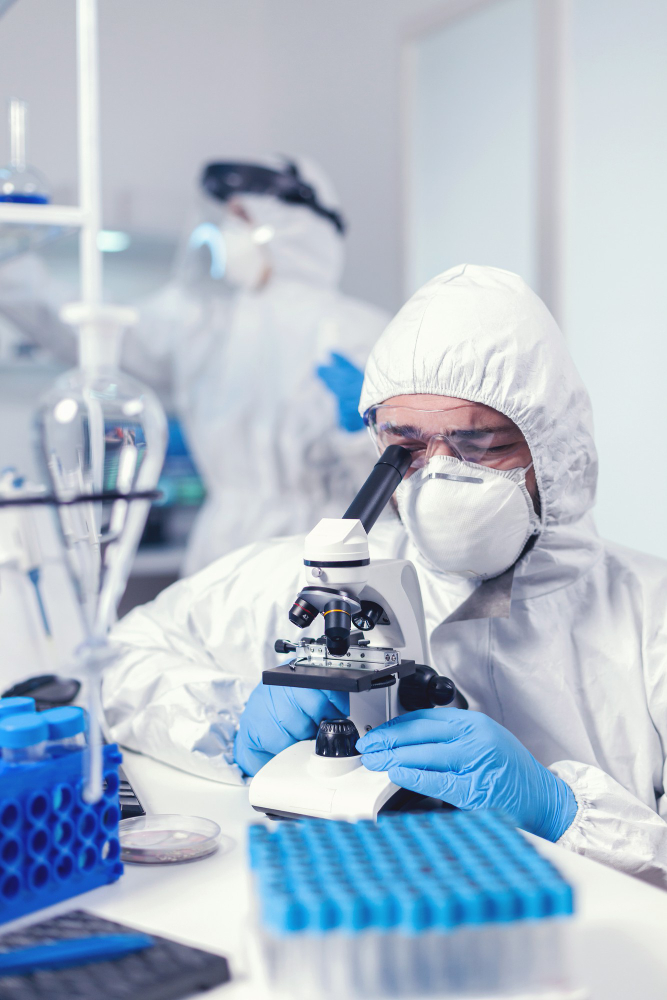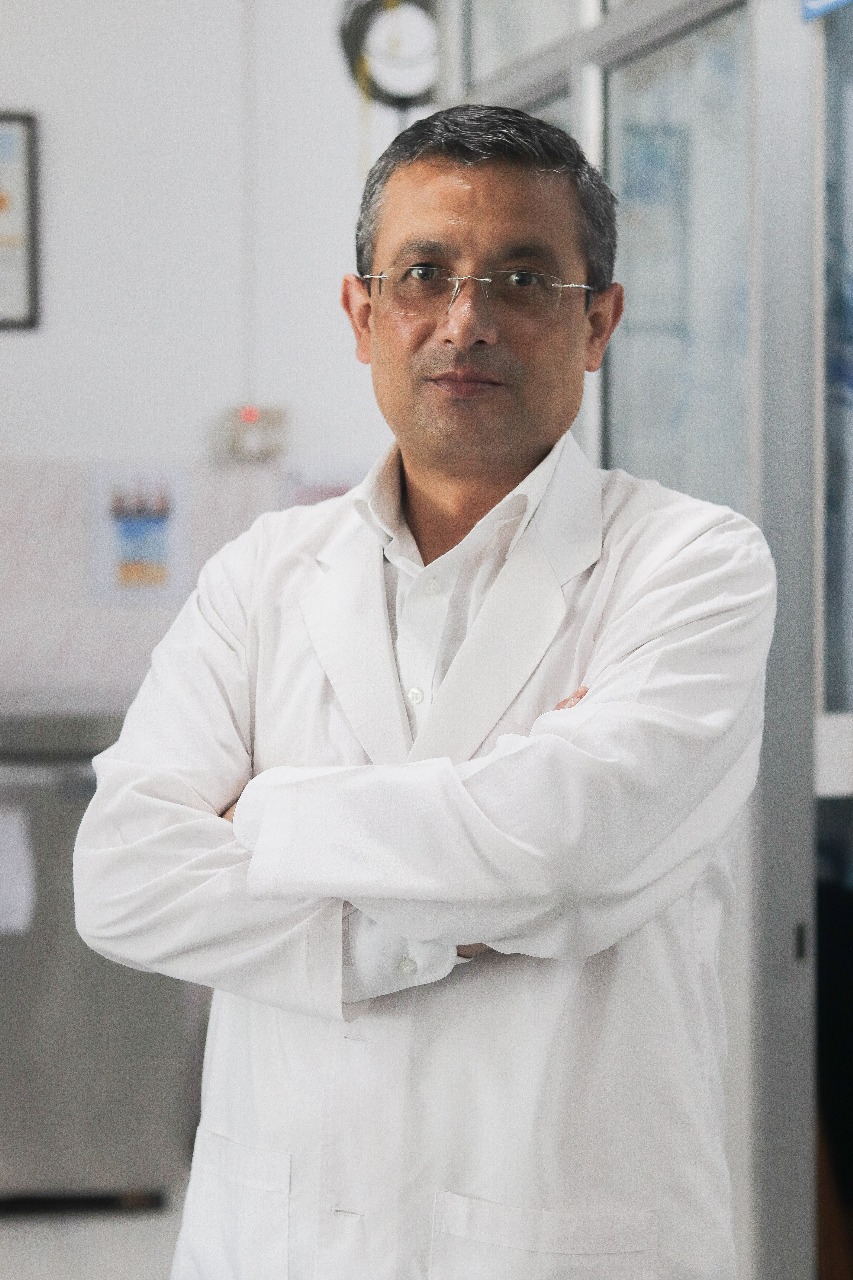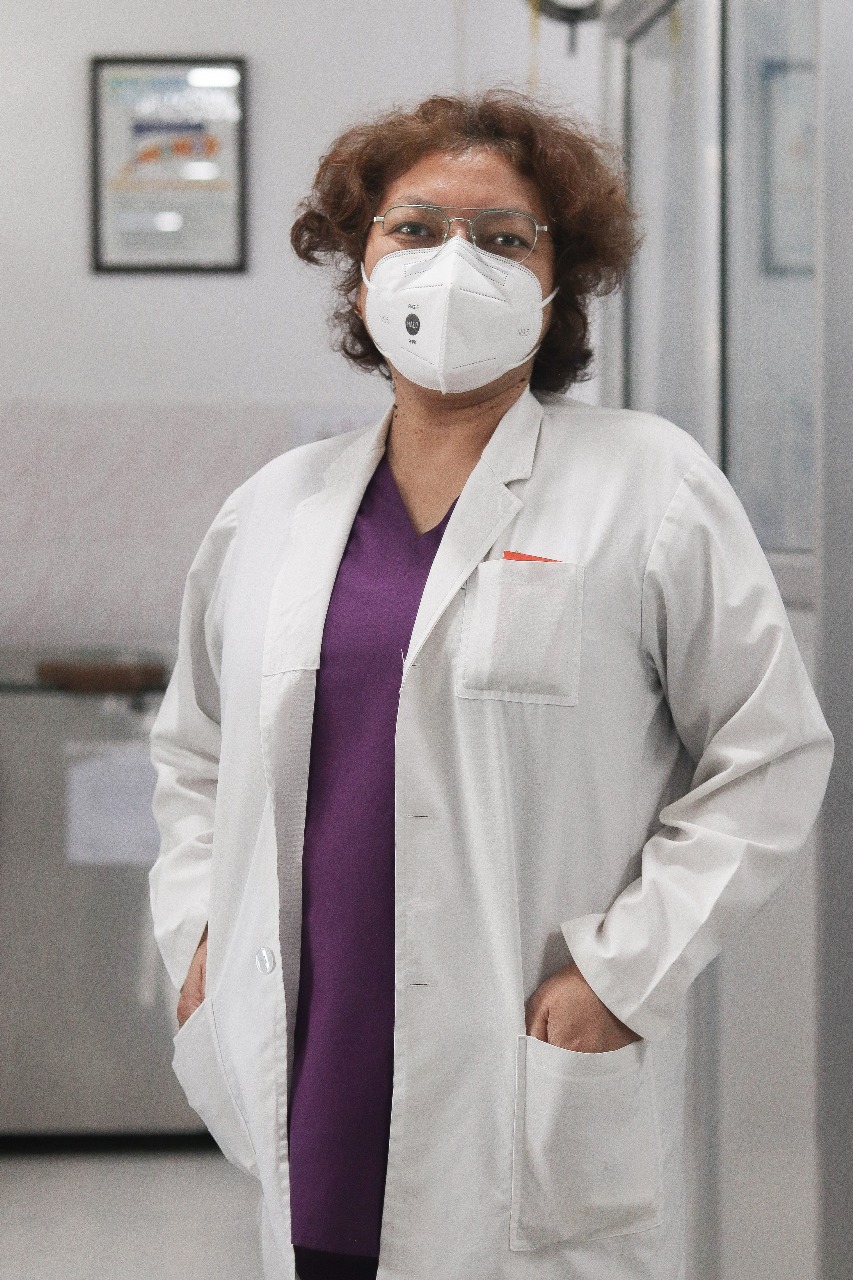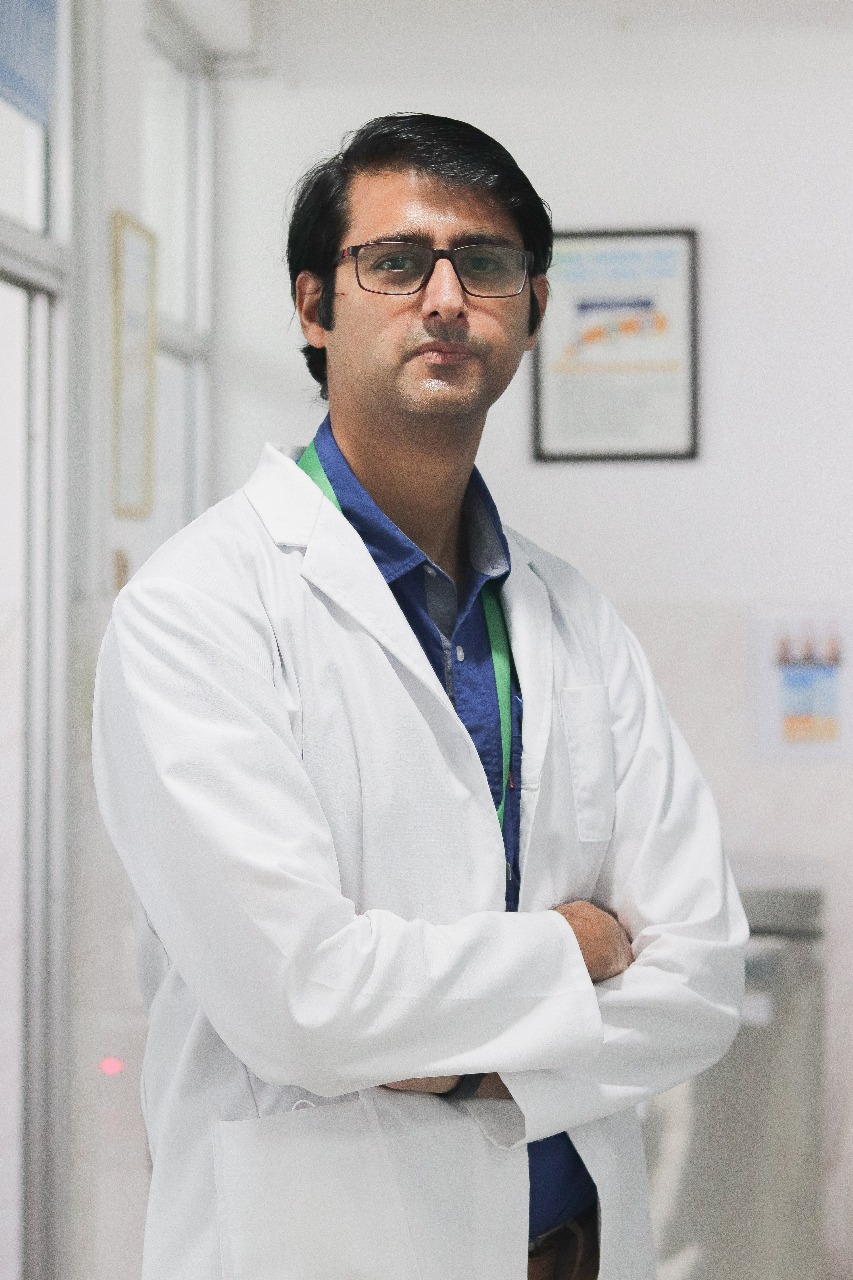
Laboratory Medicine
Precision Testing for Accurate Diagnosis
The Clinical Laboratory in Nazareth Hospital started in a very small way in the year 1965. It provided very basic laboratory services to begin with and graduallyevolved &expanded to its present size and scope. Located in a dedicated floor covering an area of 2700 sq. ft.,it provides comprehensive services to patients 24×7, using state of the art equipment and stringent Quality Control.
Overview & Quality Policy
The Clinical Laboratory in Nazareth Hospital started in a very small way in the year 1965. It provided very basic laboratory services to begin with and graduallyevolved &expanded to its present size and scope. Located in a dedicated floor covering an area of 2700 sq. ft.,it provides comprehensive services to patients 24×7, using state of the art equipment and stringent Quality Control. The Mycobacteriology laboratory is the State reference centre for testing multi-drug resistant strains of tuberculosis. Our vision is to introduce high-end testing in the future, which will enable patients to access these facilities within the city itself at an affordable cost. We constantly endeavour to serve our fellow human beings following our hospital motto……“to love, to serve, to heal”.

Quality Policy
-
Nazareth Hospital Clinical Laboratory is committed to producing reliable patient test results in a manner necessary to ensure appropriate and timely patient care.
-
The laboratory will strive to produce reliable patient test results by combining procedures that promote efficiency with technology appropriate to the laboratory mission and operated by staff that is both trained and competent to perform the work.
-
Lastly the Laboratory will try its utmost to provide investigations commensurate with the level of clinical services provided in Nazareth Hospital.
Pathology
The Clinical Laboratory actually started services as a Pathology laboratory and included all the departments (including Biochemistry & Microbiology) under its umbrella. Gradually due to increase in size and complexity , they separated and Pathology evolved into a standalone department with two sections, Haematology & Clinical Pathology and Histopathology & Cytopathology. These sections currently serve the hospital.
Haematology & Clinical Pathology
Tests performed
-
Complete blood counts : Hb Haematocrit TRBC MCV MCH MCHC Platelet count TLC Reticulocyte count
-
Haemorrhagic disorders : Prothrombin time (PTT) activated partial Thromboplastin time (APTT)
-
High Precision Liquid Chromatography : Glycosylated hemoglobin (HBA1C) hemoglobin variants
-
Bone marrow examination : Manual bone marrow study for various hematological disorders
-
Urine Stool & Body fluid examination
Histopathology & Cytopathology
Clinical Microbiology & Immunology
Bacteriology & Mycology
This section forms the backbone of the Clinical Microbiology department. It is concerned with the growth, identification and antimicrobial susceptibility testing of various bacterial and fungal pathogens isolated from patient samples. This susceptibility data is subsequently analysed for meaningful information which is used in the creation of hospital policies and in the treatment of patients.
The Vitek 2 and Vitek 2 Compact are instruments capable of identifying and performing susceptibility testing for bacteria and yeasts (which are a type of fungi that can cause infections in humans). This greatly aids in the treatment of patients.
The Vitek MS is a mass spectrometer which analyses the protein profile of an organism and based on its protein composition, identification is made.
Myla is a dedicated software which helps with reporting of results, collection of data, detecting hospital associated infections and helps in making all the data generated make sense. It, when fully implemented will radically change the way the department functions in the sense that it will improve quality of reports, turnaround times and trouble shooting. The software enables access to the instruments from anywhere around the world at anytime, this in turn improves monitoring of the functions in the laboratory.
Serology
Tests performed on the Vidas
-
HBsAg Screening & Confirmatory
-
Anti-HCV
-
HAV IgM
-
Procalcitonin (PCT)
-
Anti-thyroglobulin antibodies anti-TG
-
Thyroid peroxidase antibodies (TPA)
Other tests performed
-
Widal test
-
Weil Felix
-
Syphilis rapid test
-
Rapid Plasma Reagin (RPR)
-
Anti-thyroglobulin antibodies anti-TG
-
Scrub typhus rapid test
-
Typhidot Rapid
-
Stool Rota-adeno virus rapid test
-
Japanese encephalitis rapid test
Integrated Counseling & Testing Centre
Accreditation / Certification
-
Licensed Blood Bank Licence No.: 3/DL/MFG
-
RNTCP certified Line Probe Assay (LPA) laboratory: Certification No.: 33 /RNTCP/ 2013
-
NABH Pre-Accreditation Entry Level Hospital Requirements Achieved Certificate No. : PEH-2016-0125
-
NABL Certification Achieved
Clinical Biochemistry
System wise parameters tested
-
Liver Function Test: Serum bilirubin with fractions AST (SGOT) and ALT (SGPT) alkaline phosphatase serum protein with fractions
-
Kidney Function tests: Serum urea serum creatinine
-
Pancreatic function: Serum amylase serum lipase
-
Lipid profile: Total cholesterol triglycerides LDL HDL VLDL
-
Anaemia: Serum iron serum ferritin Total iron Binding Capacity (TIBC)
-
Vitamins: Vitamin D vitamin B12
-
Hormones: TSH T3 T4 Free T3 Free T4 beta-HCG
-
Serum electrolytes Na+ K+& Cl–
-
Body fluids (CSF pleural peritoneal etc.): Glucose protein adenosine de-aminase (ADA)
Other tests
-
Troponin I
-
Serum phosphorous
-
Serum magnesium
-
Anti-streptolysin O (ASO)
-
Rheumatoid factor (RA)
-
C-reactive protein (CRP)
-
Hormones: TSH T3 T4 Free T3 Free T4 beta-HCG
-
Serum electrolytes Na+ K+& Cl–
-
Gamma glutamyl transferase (GGT)
-
Serum uric acid
-
Serum calcium
-
Serum glucose (GTT RBS FBS PPBS)
-
24 hour urine protein estimation
Mycobacteriology
Equipment
-
Yorco Class 2 Bio-safety cabinet
-
Yorco Laminar flow
-
Fume hood
-
Procalcitonin (PCT)
-
AB Systems Thermal Cycler for PCR
-
HAIN Lifescience Twincubator
-
Hettich Refrigerated centrifuge
-
Dynamica Minifuge
-
Yorco Vortexer
-
bioMerieux BacTAlert 3D 120
-
Walk in cold room
Designated Microscopy Centre (DMC)
Integrated Counseling & Testing Centre
The ICTC is linked to the RNTCP (Revised National Tuberculosis Control Programme), whereby all patients suspected to be suffering from tuberculosis are referred via the Public Health Department and vice-versa. It is also linked to the Anti-retroviral Treatment (ART) Centre and the Sexually transmitted diseases (STD) Clinic, Civil Hospital, Shillong. Newly diagnosed patients are linked to the ART Centre for monitoring of CD4 counts and to avail definitive therapy. The ICTC also provides appropriate counseling &post-exposure prophylaxis to all patients/staff suspected of having infection or who are deemed at risk of having contracted HIV accidentally.
In the future, there is hope to scale up the services of the ICTC with the addition of a CD4 counter and PCR for molecular diagnosis and viral load testing.
The Nazareth Hospital Blood Bank was established in the year1993, when it was granted its license (License No.: 3/DL/MGF). It caters to the needs of the residents of the city as well as to the needs of the surrounding districts too. Standards in the techniques used and quality control are rigourously maintained as laid down in the Drugs and Cosmetic Act, of the Regulatory Authority, Director Drugs Controller (India), Ministry of Health & Family Welfare, Government of India.




